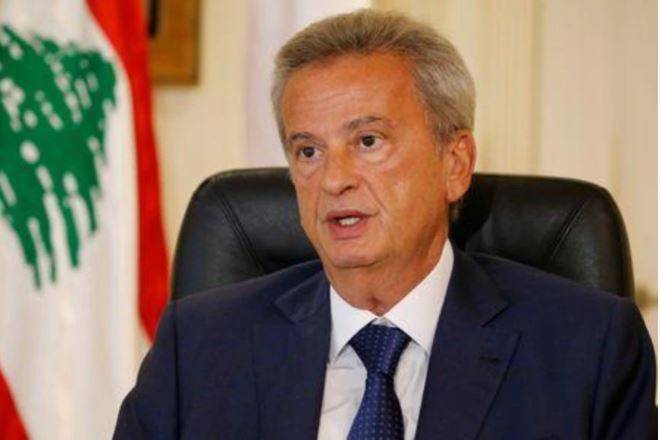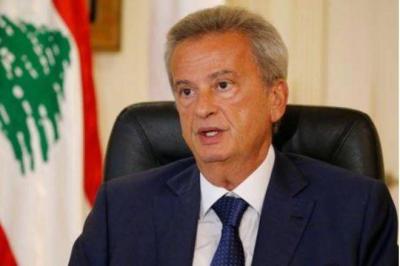The newspaper "Al-Jumhuriyeh" reported: As the deadline for the formation of electoral lists approaches and the withdrawal of candidacies, election campaigns are intensifying, and the announcement of lists continues in various districts, despite some ongoing skepticism about the likelihood of elections taking place. Amid the election campaigns, objections persist regarding the capital control law that is now in the hands of the Parliament amid negotiations with the International Monetary Fund in preparation for the approval of a recovery plan, while the Lebanese are still suffering from economic and financial hardships due to rising prices and the greed of traders and monopolists without accountability.
After the government's approval of the capital control law, political, economic, and financial circles continue to dissect it, divided into two camps: the larger faction waged a fierce attack on it in an effort to quash it at birth, while a few defended it as the sole means of salvation in this deteriorating and dangerous financial context. There are also those who engage with the law as if they were straddling the fence, accepting the principle as a foundation for preserving reserves and cooperating with the IMF while objecting to some flaws within it.
Ministerial sources that opposed the law told "Al-Jumhuriyeh" that they see it as a detriment to legal provisions protecting depositors' rights, demanding the presence of a financial legal expert to ensure the relationship between the depositor and the bank. They stated that the committee given the authority to decide on requests has granted itself absolute powers, as all payments, transfers, and withdrawals are subject to vague controls determined by the committee. For example, an individual is allowed to withdraw $1,000 monthly, but the mechanism remains unclear, while the committee has the authority to determine the exchange rate...
In internal dealings, there are several unclear points regarding restrictions on transfers, which are very important and should have been established two years ago. Currently, they must occur in parallel with the recovery plan, which has not happened.
Government sources told "Al-Jumhuriyeh": Lebanon is not the only country to enact a capital control law, as this has happened in many distressed countries. However, in Lebanon, we politicize every file and sectarianize it. The monetary and financial file must be dealt with within the relevant frameworks and not in political bazaars, where populism has entered for electoral calculations.
The sources added: "The law is acceptable, and its goal is to preserve what remains of the reserves to continue importing medicine, wheat, and essential materials which require a difficult operation. We are currently in a suffocating condition, and if we decide to give anyone a liter of oxygen, we must ensure they return to us three liters of oxygen to keep the country breathing. Those who want dollars for tourism will not receive them as we are in an exceptional situation; the reservoir is empty, and what remains is just for drinking and not for filling pools. Our economy is dollarized between 60% to 80%; our economy relies on dollars, and the disaster is that 80% of our economic output relies on consumption, with 80% of that consumption imported with dollars. In all countries, it's known that the pillars of the economy are built on consumption and investment, and everyone knows that there is no longer any inflow of hard currencies into Lebanon, and the Lebanese no longer trust the banking sector, requiring years to regain this trust. Therefore, we must manage well and preserve what remains of the reserves for necessities, not luxuries."
The governmental sources revealed that the IMF, during meetings held over two days, confirmed its agreement with 95% of the capital control law, preferring that its duration not be defined and instead linking this point to the improvement of the balance of payments. When this balance improves, capital control can be lifted. The delegation emphasized that the flow of funds back to Lebanon is related to the political situation and the institutional framework that needs to stand on its feet again to become favorable for investment.
Moreover, the delegation will stress during meetings concluding at the end of next week the need to restore health to public finances, reduce the deficit, and streamline expenditures. Concerning revenues, the Fund requested that they be sustainable and reliable, as well as ending tax evasion and unifying the exchange rate as preliminary steps for stabilization. It will also discuss the status of the banking sector, which has lost most of its capital, while fairly treating depositors. The IMF delegation inquired about the approval of the budget and the framework for restructuring banks, in addition to a crucial point regarding banking secrecy.
Furthermore, it will finally request the implementation of governance, fighting corruption, judicial independence, transparency, and all matters related to public affairs management so that we can sign a STAFF LEVEL AGREEMENT at the level of the negotiating team.
**Promising Aspects**
Prime Minister Najib Mikati met yesterday with an IMF delegation headed by Ernesto Ramirez Rigo, alongside Deputy Prime Minister Saadeh Al-Shami, where they discussed the stages of negotiations between Lebanon and the Fund regarding the financial cooperation program. Prominent government sources told "Al-Jumhuriyeh" that negotiations with the IMF are on the right track and that there are promising elements. They confirmed that the Prime Minister is committed to fulfilling his responsibilities, overcoming obstacles, and will not take any step that could hinder his government's diligent efforts to implement all reform steps that place the country on the path to recovery, starting with the recovery plan.
These same sources reiterated that the Prime Minister has no intention of resigning at all as he understands the dangers facing the country, and he is working with his government to execute everything that leads to alleviating the crisis. They emphasized that legislative elections are a constitutional entitlement that must be held on schedule. The sources will not dwell on the issue of the capital control law and the objections that have been raised around it, stating that this matter is now in the hands of the Parliament, which will determine its fate in the end.
**Encouraging Goodness**
On another note, President Michel Aoun confirmed during his reception of the new executive council of the Maronite League, led by Ambassador Dr. Khalil Karam, that he would not leave his position "until I have exposed every corrupt person," indicating that “the responsibility for the revival of the country falls on my successor," urging to "encourage the honest and brave to take the reins of power after my term." Regarding accusations that he sought to implement a presidential system, he stated: “I don’t want to create a presidential system; I want to create a president,” and confirmed that "just as I demanded the approval of forensic auditing in the government, I am currently fighting regarding capital control." He called on citizens to "vote for the correct choice in the upcoming legislative elections" and stressed "the necessity of reforming the judiciary and other institutions in the state,” considering that “there can be no reform as long as institutions are controlled."
As the deadline for registering electoral lists and withdrawing candidacies approaches on April 4, Aoun discussed yesterday with Interior and Municipalities Minister Judge Bassam Mawlawi the security conditions in the country and the preparations being made by the Ministry of Interior to finalize the upcoming legislative elections, along with the latest developments concerning them.
**Postponement of Salamé’s Interrogation**
Judicially, the first investigating judge in Mount Lebanon, Nicolas Mansour, postponed the interrogation of Banque du Liban Governor Riad Salamé until June. This is in relation to the public prosecution’s lawsuit against him for "money laundering and illicit enrichment." The session scheduled for yesterday was attended by Salamé's legal representative, lawyer Shawki Kazan, who presented formal defenses.
After reviewing with the Litigation Authority in the Ministry of Justice the fate of the letter it received from the Public Prosecutor in cassation Judge Ghassan Oueidat concerning the freezing of funds belonging to Banque du Liban Governor Riad Salamé in some foreign countries, head of the Litigation Authority, Judge Helena Iskandar, noted that "as soon as the letter from the Public Prosecutor in cassation was received, informing her of his request to freeze funds belonging to the Governor and his partners held in banks in Switzerland, France, Belgium, Germany, and Luxembourg due to their prosecution for embezzlement of public funds, tax evasion, and money laundering, and that he would provide her with responses to the freezing requests as soon as received, President Iskandar had directed a letter to the Finance Minister, referring to a previous letter sent to him on the same subject dated 01/17/2022, requesting to assign a lawyer or law firm to assist her before foreign courts, in accordance with legal provisions, in order to reserve the funds belonging to the Banque du Liban Governor and his partners for the benefit of the Lebanese state and for litigating them before foreign judiciary to prevent these funds from being seized by the countries where they are being prosecuted, given that these funds legally belong to the Lebanese state. She noted that she had previously referred to MP George Adwan a proposal to amend the legal text allowing the head of the Litigation Authority to institute legal actions ex officio and without the need for approval from any minister against anyone, in order to preserve the rights of the Lebanese state, but no law has been issued in this regard to date. It is worth mentioning that contracting with a state lawyer to assist the head of the Litigation Authority occurs through a contract made by the Minister of Justice, which needs to be issued by a decree adopted by the Council of Ministers."
**Bail of 500 Billion**
In the meantime, Judge Mansour decided to release Raja Salamé, the brother of Banque du Liban Governor, on a financial bail with a freeze on his assets in Lebanon. However, the public prosecution challenged the ruling and kept him in custody, according to press reports. It was mentioned that Raja Salamé's attorney appealed before the Mount Lebanon Court of Appeals the decision of Judge Nicolas Mansour to reduce the financial bail, while no request has yet reached the appellate body from the public prosecution, which can appeal within 24 hours. It is rumored that the bail demanded by Mansour for Raja Salamé's release is 500 billion Lebanese Lira, equivalent to about 20 million dollars.
**COVID-19**
In health news, the Ministry of Public Health announced in its daily report regarding the COVID-19 pandemic the registration of 380 new infections (380 local and 0 imported), bringing the total number of infections to 1,092,157. The report also recorded 6 new deaths, raising the total number of fatalities to 10,302.




